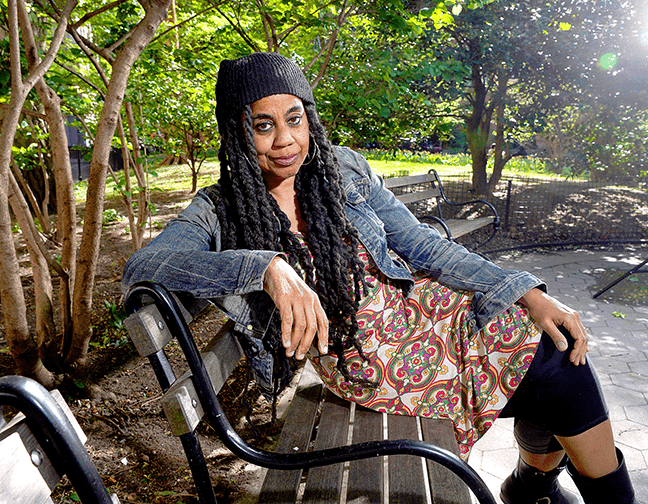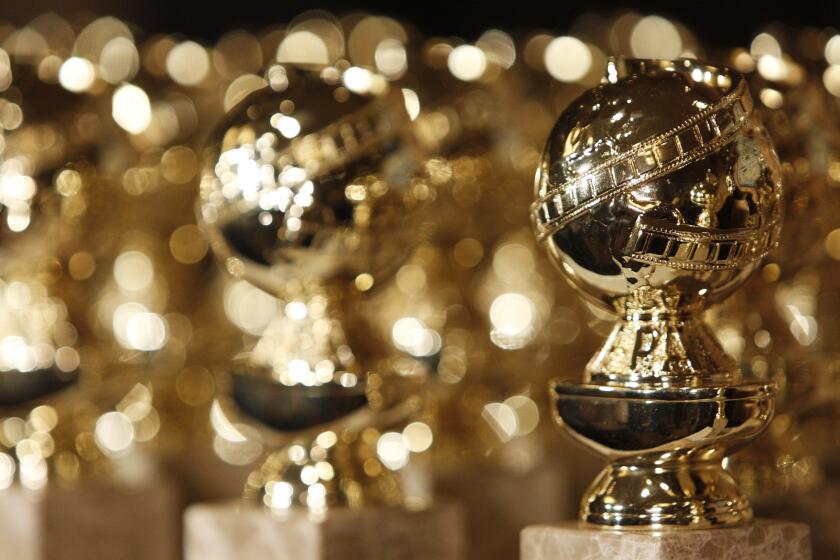‘Hacks’ bosses explore the sweet and sour of what’s funny today
- Share via
Lucia Aniello, Paul W. Downs and Jen Statsky, showrunners (and, in Downs’ case, costar) behind “Hacks,” HBO Max’s first season juggernaut that landed 15 Emmy nominations, are not, in fact, hacks. Far from it: Among them they share credits at such lauded shows as “Broad City,” “The Good Place” and “Parks and Recreation” for a start.
And as they proved with their new Jean Smart/Hannah Einbinder comedy about a veteran funny woman on the down slide who hires a Gen-Z “canceled” up-and-comer to help with her jokes, they share a unique insight into what “funny” means today. All three joined The Envelope via Zoom to explore how comedy has gotten more earnest — and far less binary.
Your star Jean Smart is versatile and electric on screen, but she’s not a stand-up comic. How did that affect bringing her character, Deborah Vance, to life?
Lucia Aniello: We spent a lot of time making sure the joke said something about the woman — and Jean is so absolutely, fully present in the moment, that lends itself to believability as a stand-up. With the best stand-ups, it’s not about the jokes they tell: it’s how they tell it, right?
The veteran actress stretches in opposite extremes for two HBO projects, the comedy ‘Hacks’ and the dramatic murder mystery ‘Mare of Easttown.’
Paul W. Downs: Jean comes from theater, and she’s really prepared. In the episode where Ava [Einbinder] uses the wax figure for her [phone’s] Face ID, she was like, “How do you like this pose?” She had rehearsed standing still.
Jen, you worked on “The Good Place,” and creator Michael Schur’s company Fremulon is an executive producer on “Hacks.” Do you feel like there’s DNA from shows like “Good Place” in this series?
Jen Statsky: “Parks and Recreation” and “Good Place” and “Broad City,” which is a show we all worked on, are incredibly different shows, but there is something in the DNA — people needing each other, making each other’s lives better, helping each other. Some of those shows may tend toward a more saccharine view than ours, [but] when we talked about “Hacks,” we wanted it to be rude but never mean. At the heart of this show is two women who really need each other, which is something I think all those shows are also about.
Shows like “Seinfeld” and even “The Office” reveled in a kind of ironic detachment, and the pendulum seems to have swung in the other direction for comedy. Why is that?
Downs: There are three buckets: Some things are sweeter, some are sour and then there are some that have a little of both, like ours — a bitter sweetness to it. It’s definitely cyclical.
The Envelope Showrunners Roundtable gathers the creators of ‘Bridgerton,’ ‘Dickinson,’ ‘Hacks,’ ‘The Handmaid’s Tale,’ ‘Genius: Aretha’ and ‘Small Axe’ to talk television today.
Aniello: It’s certainly a trend — but also a result of when there were three networks there was a small window for what comedies could be. Now comedies get to be whatever you want them to be, and the audience can find their thing because there are so many options.
Do you ever wonder if you’re existing in a moment now the way Deb did back in the day — where things you let slide now are what someone like Ava will call you out for 20 years down the road?
Aniello: Probably. Maybe. We tried to be aware of making things feel equal for everybody we work with.
Downs: It’s hard to predict the way in which context shifts for any art form. The moment we’re really in is the reckoning that society is having with the way we’ve treated women. So hopefully we’re pushing culture forward and on the right side of that moment, even if we tell a joke that someone someday says, “Wow, that fart joke was really wrong.”
Aniello: So by the time we have an Ava, maybe it’ll be a reckoning on how we treated the Earth.
Downs: They’re going to be like, “Deborah Vance got a Styrofoam cup from that gas station!” And we all know how Deborah Vance loves a fountain soda.
Deb could retire — her home shows us she has enough wealth to do so. Why does she fight so hard, then?
Statsky: For Deborah, the work is what fills her days. She’s a shark; she just has to keep moving. But her calendar is kept full for a reason. If she keeps going, she maybe doesn’t have to think about the other stuff she hasn’t thought about for a long time.
Paul, as the guy here — what have you learned about women in comedy from writing this show?
Downs: Sometimes I feel like a traitor to my gender, because I think women are funnier than men. What’s been the most remarkable thing for me is the amount of women who are stand-ups or writers who are so emotionally moved by the show. You’ve heard “representation is important,” but I didn’t fully grasp what it means for people to see themselves and see their experience showcased on TV and how powerful that can be.
Is female comedy different from male comedy?
Aniello: What is male, what is female? I’m hoping that instead of living in such a binary world where we say “this is female, this is male, this how they do comedy” that we’re moving toward a world where it’s just all comedy that speaks truth to power. And to me that’s non-gendered.
More to Read
From the Oscars to the Emmys.
Get the Envelope newsletter for exclusive awards season coverage, behind-the-scenes stories from the Envelope podcast and columnist Glenn Whipp’s must-read analysis.
You may occasionally receive promotional content from the Los Angeles Times.











